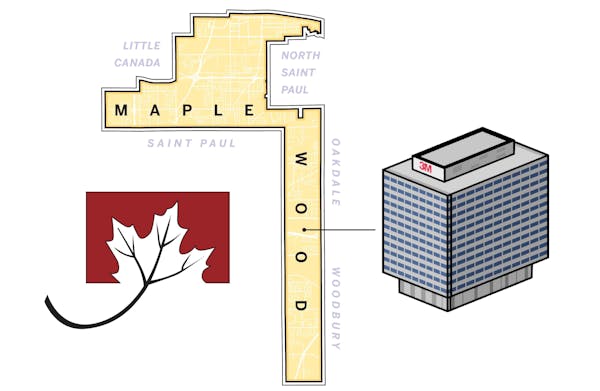What are the financial pros and cons of retiring in Minnesota?
Listen and subscribe to our podcast: Apple Podcasts | Spotify
Choosing where to spend retirement is a big decision.
For most Minnesotans, the answer is ... Minnesota. Most of the state's retirees stay local. But some are lured elsewhere by warmer climates and economic factors.
A reader wanted to know the financial advantages and disadvantages of remaining in Minnesota for retirement — including taxes and health costs. They sought answers from Curious Minnesota, the Star Tribune's reader-powered reporting project.
If minimizing taxes is the top priority in choosing a place to retire, Minnesota has some distinct financial disadvantages for retirees. But there are trade-offs to the cheaper routes that should be considered.
"You have to look at the whole picture," said Steven E. Warren, a certified public accountant in Minneapolis. "Some people think, 'Oh, Florida has no income tax so it's clearly going to be a better, less expensive place to retire.' For others, clearly there are other quality of life issues beyond taxes. In those, generally Minnesota comes out well."
'99% of the state is staying put'
Some popular financial websites rank Minnesota among the best states to retire — though not for financial reasons. The state is No. 8 on WalletHub's list, for example, which balanced Minnesota's higher cost of living against the state's top-ranked health care and quality of life. The Motley Fool ranks the state No. 3 overall for retirement, but 39th in the nation for taxes.
Financial matters are important, considering that most Americans will not have enough money for a financially secure retirement, according to the National Institute on Retirement Security. The Institute attributed the problem to the shift from pensions to 401(k) plans starting in the 1980s. 401(k) plans are subject to stock market volatility, as well as savers underinvesting or tapping them in a financial emergency.
Few older people leave Minnesota, said State Demographer Susan Brower. About 19,000 Minnesotans over 60 move out every year, while another 11,000 move in.
"I think a lot of times people tend to think of it as a one-way ticket out. But that's not at all the case," she said. "About 99 percent of the state is staying put."
Brower noted that the expense of moving could outweigh any tax savings, and that only "a select group of very high-income people" choose a home based on taxes.
Higher taxes
Taxes are Minnesota's most obvious financial disadvantage. For one thing, it's among only 10 states that tax income from Social Security for those who file above certain income thresholds, according to Time magazine.
Minnesota also taxes public and private pension plans (excluding military pensions and certain public pensions) as well as distributions from individual retirement accounts and 401(k)s.
Unlike 38 other states, Minnesota collects estate taxes on high-value estates (generally exceeding $3 million) after people die. But it does not levy inheritance taxes on heirs.
Minnesota's 6.87% state sales tax rate is among the country's highest, below only six other states.
What about day-to-day expenses? Minnesota ranks somewhere around the middle for general cost of living, calculated by costs for groceries, health care, housing, transportation, utilities and miscellaneous expenses, according to World Population Review. On health care, specifically, the state has the 17th highest per capita spending in the nation, based on federal government data.
A financial trade-off
By those financial measures, Minnesota doesn't appear the ideal place to settle in retirement. But the reality is often more nuanced in terms of what you get for your money.
"If you take a more broad look at finances, Minnesota actually comes out OK," said Chris Farrell, author of "The New Frugality: How to Consume Less, Save More and Live Better" and a writer for the Star Tribune's "Your Money" column.
Some states might appear at first glance to be more affordable, Farrell said, but "you're going to pay for it somehow."
For example, states with low or no income taxes may have higher sales, property or excise taxes (added taxes on products like cigarettes, alcohol and gas). Or they may make up for the lower taxes by providing reduced government services.
Golden Valley financial adviser Michael Schumacher echoed that thought. "Each state has to generate revenue," he said. "How are they doing it?"
Higher taxes can mean better quality of government programs and services. Minnesota is known for excellent infrastructure, for example.
Other financial considerations include nontax expenses like insurance, which could be more costly in areas with higher crime or flooding.
For retirees seeking to work part-time, Farrell said it may be easier to find a job in a place where they have social networks.
Some retirees seek the best of both worlds. Snowbirds who split their time between Minnesota and states with friendlier taxes — like Florida — may prefer to claim residency in the cheaper one. Warren, the accountant, said it is important to keep good documentation. In the event of an audit, state revenue officials will look at factors like where your driver's license was issued, where you're registered to vote, maybe even where you attend church.
"They might ask for all of your credit card transactions," Warren said. "Different factors that show, 'OK, now I'm truly spending most of my time and putting myself out there as a person from this other state.'"
Culture, climate, health care
There is more to retirement than money, of course.
In addition to taxes and expenses, retirees may care about amenities like the Twin Cities' reputation as a premier theater and performing arts hub, endless miles of groomed cross-country ski trails or proximity to the Mayo Clinic. Living near family is often the top reason why retirees live where they do.
"What's the cost, to me personally, of leaving the grandkids behind?" Farrell said. "I would consider it enormous."
Living near family can be practical, too. The elderly can often turn to relatives for support they would otherwise have to pay for themselves.
Climate is a non-economic factor for retirement that typically doesn't work in Minnesota's favor. But there are always some hardy souls who wouldn't want to live in a place, even in old age, that lacked a robust winter.
In the end, the feelings of comfort and enjoyment you get from your environment are probably the most important factors in choosing a place to live.
"I always try to tell everyone that I work with, don't make your choice just off of taxes," Schumacher said. "If you're going to be miserable living in Texas, why would you do that? Mental health is important, too."
If you'd like to submit a Curious Minnesota question, fill out the form below:
Read more Curious Minnesota stories:
Why does Minn. have one of highest rates of volunteering in the U.S.?
Why is it that Minnesotans will 'give you directions to anywhere but their home'?
Why does Minnesota tax social security benefits? How many other states do this?
How many people live their entire life in Minnesota?
640th Avenue? 180th Street? The backstory behind long rural addresses
Why can't you buy a car on Sundays in Minnesota?




